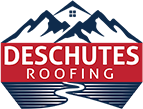When it comes to roofing underlayment, two primary options dominate the market: synthetic and felt. Each type offers unique benefits and considerations that homeowners should weigh carefully before making a decision.

Synthetic Underlayment
Synthetic underlayment is a modern alternative to traditional felt underlayment, typically made from polypropylene or polyethylene materials.
One of the key benefits of synthetic underlayment is its superior durability. It is resistant to tears and wrinkles, providing a reliable barrier against moisture infiltration and ensuring long-term protection for your roof. Additionally, synthetic underlayment offers enhanced waterproofing properties compared to felt, making it particularly suitable for areas prone to heavy rainfall or high humidity.
Another advantage of synthetic underlayment is its lightweight construction. This makes it easier to handle during installation, reducing labor costs and saving time. Furthermore, synthetic underlayment has a longer lifespan than felt, offering extended protection for your roofing system and minimizing the need for frequent replacements.
Felt Underlayment
Felt underlayment, also known as asphalt-saturated felt, has been a staple in roofing for decades. It is made from organic or fiberglass materials and offers good waterproofing capabilities at a lower cost compared to synthetic underlayment.
While felt underlayment has a proven track record of performance, it does have some limitations. One of the main drawbacks is its susceptibility to tearing, wrinkling, and deterioration over time, especially in extreme weather conditions. This can compromise its effectiveness in providing long-term protection for your roof.
Considerations for Choosing Underlayment
When deciding between synthetic and felt underlayment, several factors should be taken into account. The climate, slope of the roof, budget and roofing material are all important considerations. In regions with high humidity or frequent exposure to severe weather, synthetic underlayment may offer better protection against moisture infiltration and mold growth. Conversely, felt underlayment may be sufficient for roofs in mild climates or with lower slopes.
If you need reliable roofing services, Deschutes Roofing is the roof expert to call.
Reach us at (541) 313-5944 (Bend), (503) 967-9590 (Portland), (541) 246-6860 (Eugene), (503) 468-7663 (Lake Oswego) or (503) 928-8750 (Beaverton). You may also visit our contact page to schedule an appointment.










